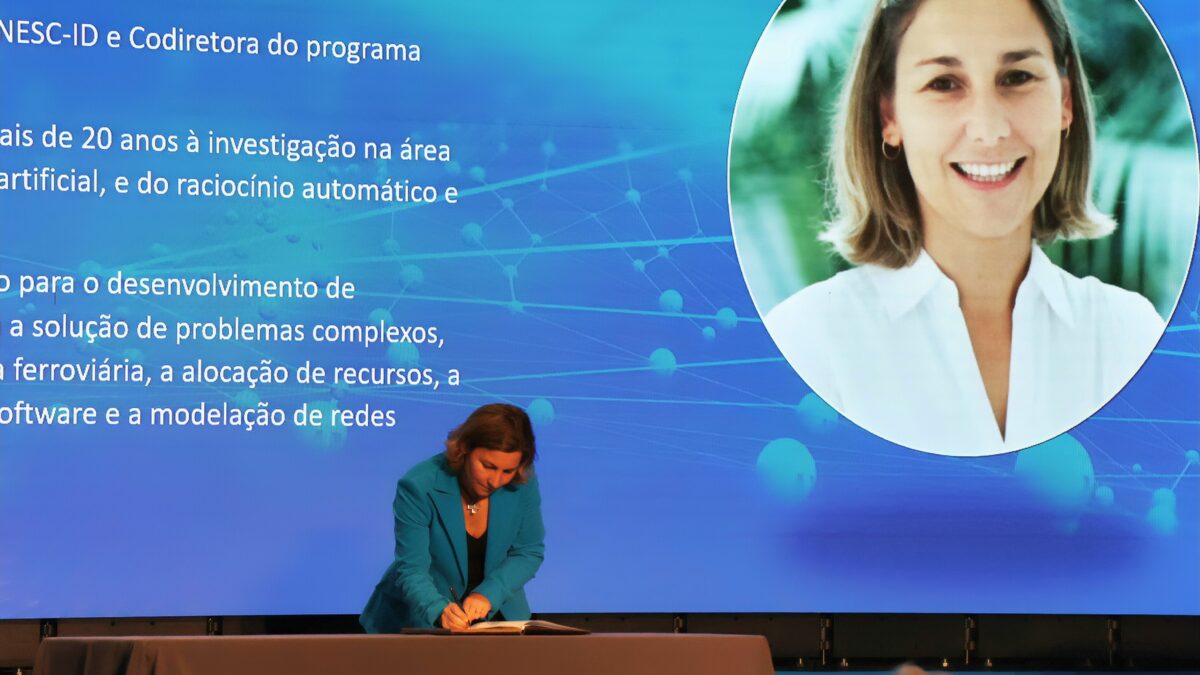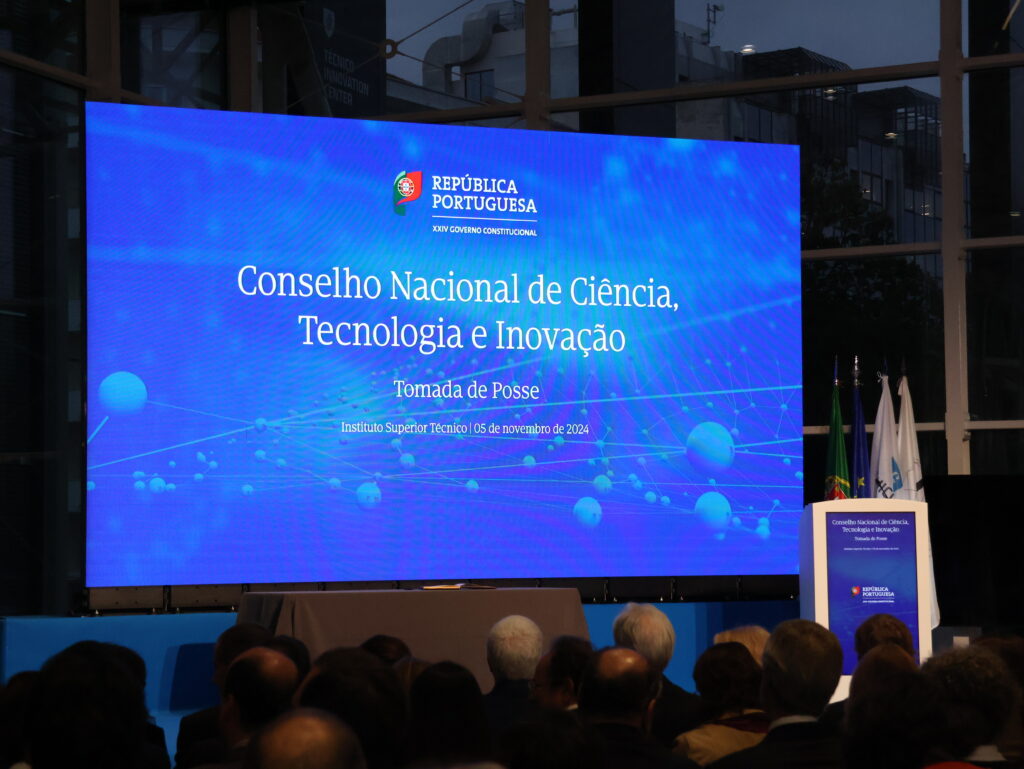
Bridging Knowledge and Innovation: Inês Lynce joins the National Council for Science, Technology, and Innovation
Carlos Oliveira, Adélio Mendes, Amélia Santos… Inês Lynce. INESC-ID’s President became the ninth figure in science, technology, and innovation to be called to the stage at the Técnico Innovation Centre on the afternoon of November 5. In a ceremony attended by the Prime Minister of Portugal, Luís Montenegro; the Minister of Economy, Pedro Reis; the Minister of Education, Science, and Innovation, Fernando Alexandre; and the Secretary of State for Science, Ana Paiva, an INESC-ID researcher, the 21 new members of the National Council for Science, Technology, and Innovation (CNCTI) were formally appointed.
This advisory body is tasked with supporting the development and sustainability of the national scientific and technological system, fostering the internationalization of Portuguese science, and promoting Portuguese as a working language in scientific fields, as outlined in the Diário da República. It is also responsible for providing scientific advice and enhancing cross-sectoral and inter-ministerial coordination in science and technology policies. Additionally, the CNCTI is expected to collaborate in parliamentary debates on science, technology, and innovation whenever requested by the Assembly of the Republic.
During her mandate, Inês Lynce, a Professor at Instituto Superior Técnico specializing in Artificial Intelligence, and National Director of the Carnegie Mellon Portugal Program, aims to promote “scientific excellence and talent attraction and retention.”
“It is crucial to have a council that can serve the Government and the country, so that what is created in universities can be translated into value,” emphasized the rector of Universidade de Lisboa, Luís Ferreira. “It often happens that those making decisions are not aware of what is being produced. We need a bridge between the foundations, where knowledge is created, and those who can leverage it to create value.” Entrepreneur and council president Carlos Oliveira highlighted the goal of making Portugal a country where science, technology, and innovation form the basis for growth by fostering dialogue between research centres, innovation hubs, and companies. As noted by Prime Minister Luís Montenegro, the world’s largest and most complex challenges, such as climate change, can only be tackled with the help of science.
Text by Sara Sá, Science Writer | Communications and Outreach Office, INESC-ID / © 2024 INESC-ID
Images | © 2024 INESC-ID

